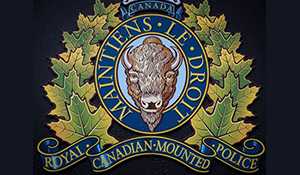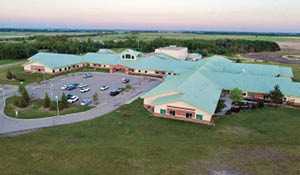Ottawa sitting on $2.5 billion in carbon tax rebates owed to small business since 2019
CFIB says gov’t holding on to $2.5 billion in revenue
February 15, 2024, 10:03 am
Ryan Kiedrowski, Local Journalism Initiative Reporter


While a promise to distribute a percentage of carbon tax revenue back to small businesses, farmers and Indigenous people was made nearly a year ago, the money seems to have stalled somewhere in the government coffers.
That’s what the Canadian Federation of Independent Business said last week, wondering exactly when the feds will make good on their promise.
“There is over $300 million that is owed to small-to-medium sized businesses in Saskatchewan,” said Brianna Solberg, CFIB director for the prairies and northern Canada. “And yet, there is still no mechanism in place to return a dime to small businesses paying the federal carbon tax.”
Solberg says despite attempts to contact the powers that be, silence was their only answer.
“Their timeline, after announcing the program, was to find a third party by spring of 2023 and that third party would be the one to distribute these funds, but there’s been no update now,” she told The World-Spectator. “2023 has come and gone. We’ve even reached out to the federal government on this issue.”
Adding to the frustration is a projected carbon tax increase to $80 per tonne effective April 1.
“We’re also concerned that, with the carve-outs that we’ve seen in Atlantic Canada, we’re concerned that this money is being used to help fund those carve-outs,” Solberg said. “We want to make sure that’s not the case.”
Since 2019, the federal government has collected $2.5 billion in carbon tax revenue. The CFIB estimates small businesses pay 40 per cent of the costs associated with the tax, but were only promised 10 per cent of those revenues.
“While the federal government charges carbon taxes to all small businesses, they plan to rebate only a select few in emissions-intensive and trade-exposed sectors, whatever that means,” Solberg added.
Extra salt in the wound can be found for those businesses who did not meet the deadline for the Canada Emergency Business Account loans on Jan. 18, who now face an extremely difficult future.
“We had thousands of members tell us that they wouldn’t be able to pay back on time and sure enough, 25 per cent of businesses who took out a CEBA loan weren’t able to pay it back by the deadline,” Solberg said. “So now they’re accruing interest.”
“We’ve seen many close their doors already,” she continued. “I think 2023 was a record year for business insolvencies—the highest over the last 13 years—and I think a 41 per cent increase in business insolvencies in 2023 compared to the year prior. Which also is just kind of the tip of the iceberg because many businesses will just close their door without filing bankruptcy.”
The CFIB is asking the federal government to return the $2.5 billion owed to small business in Ontario, Alberta, Manitoba and Saskatchewan; create a rebate formula to return the 10 per cent of ongoing carbon tax revenue quarterly, with a plan to increase the rebate to 40 per cent; reject Senate amendments on the passing of Bill C-234; freeze the carbon tax; and exempt all heating fuels.
“With the new year bringing new costs, we’re calling on Ottawa to take some concrete action and do more to help small businesses facing financial hardships. The government can show small firms that it’s listening to them by freezing the carbon tax while fixing the broken carbon backstop system,” concluded Solberg.
Federal Environment Minister Steven Guilbeault did not respond to a request for comment by press time Friday.



































